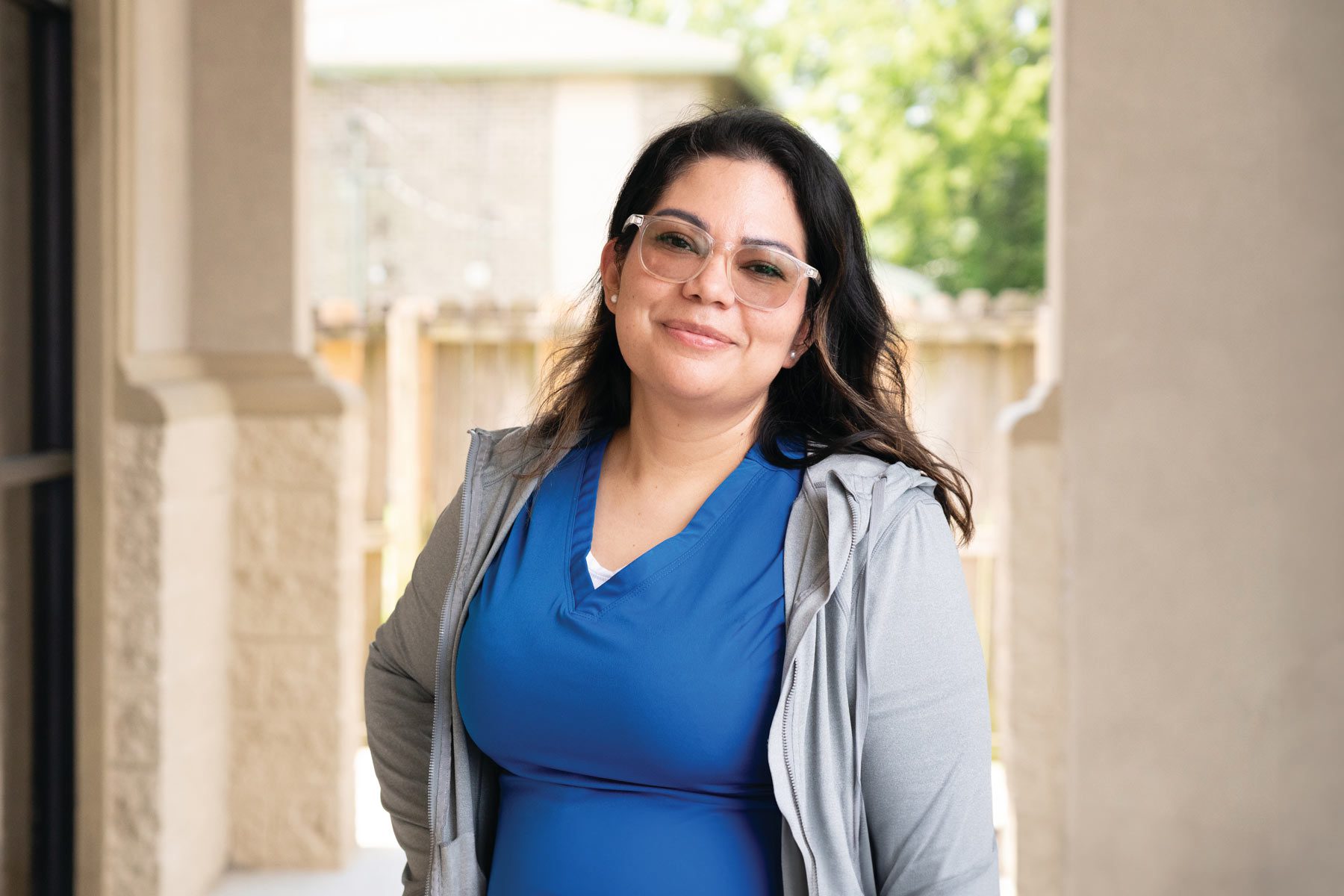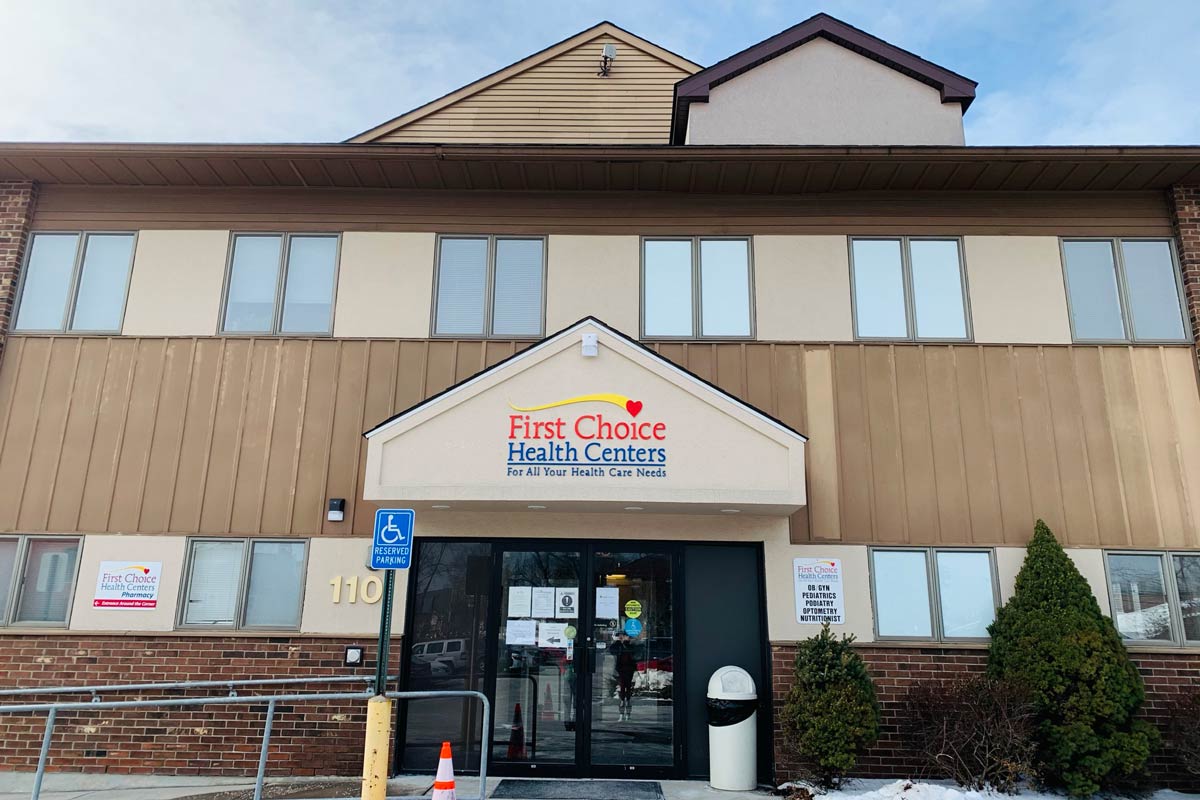STORY
Roadblocks to Health Care: Florida Families Face Transportation Challenges

Every year, 3.6 million people in the United States struggle to access vital medical care due to transportation issues. These obstacles include a lack of vehicle access, insufficient public transit infrastructure, long distances to medical services, high transportation costs, and policies that hinder travel.1
In Florida – the hottest state in the U.S. – transportation is a compounded challenge, where it’s more difficult to walk or take public transit due to extreme heat. According to the Center for Disease Control and Prevention, 10% of adult Floridians lack reliable transportation, above the national average of 9.7%.2 For pregnant people and young children, the inability to get to medical care can pose a significant barrier to proper healthcare during some of the most vulnerable stages of life.
Two Vitamin Angels partners in Florida have addressed the transportation barrier with innovation, compassion, and care—one by bringing services to people, and the other by going to those in need.
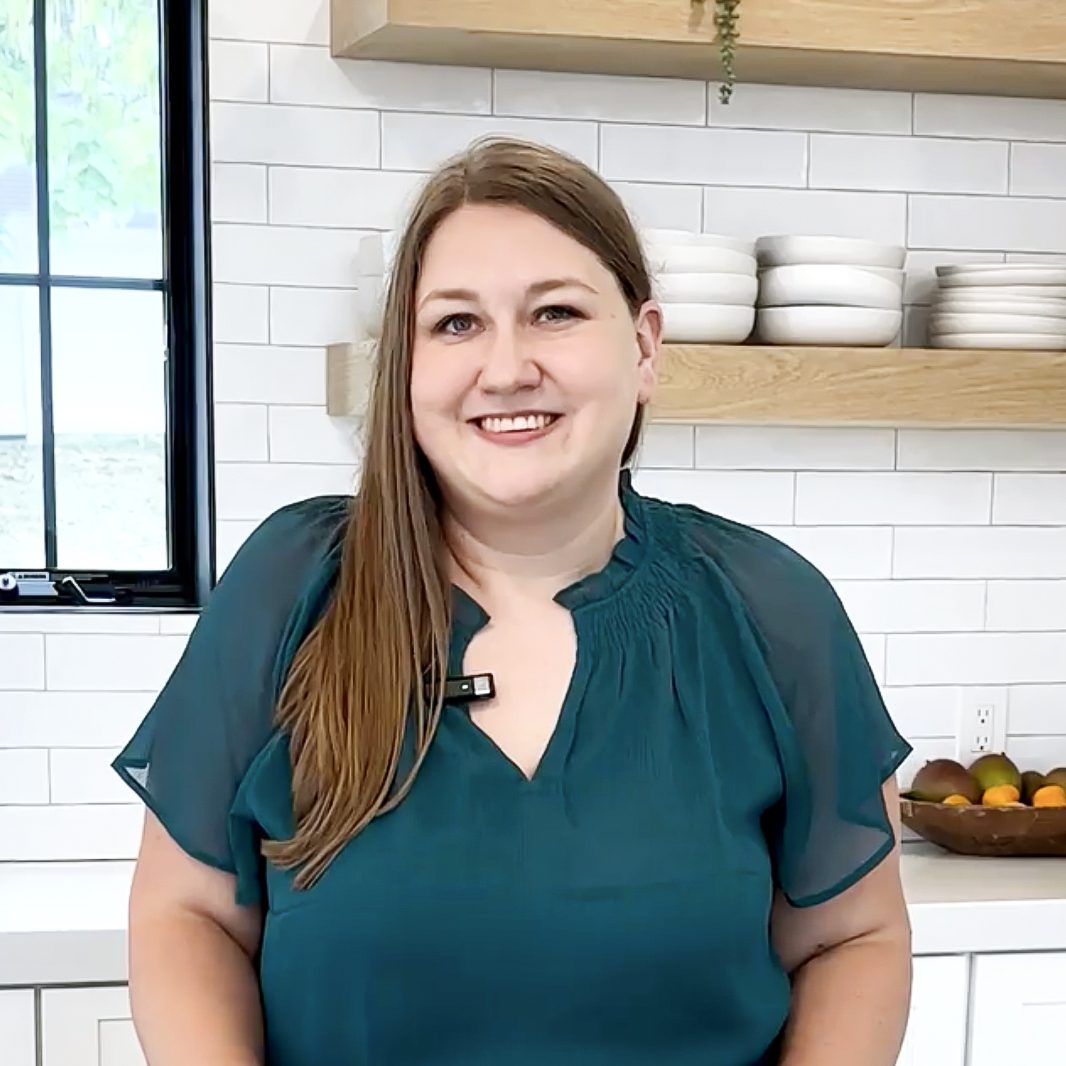
“Lack of reliable transportation prevents many pregnant individuals—especially those in rural or low-income communities—from reaching prenatal and postpartum care, leading to delays in treatment, missed appointments, and ultimately worse maternal health outcomes.
For example, nearly two-thirds of rural communities are located in maternity care deserts, meaning that adequate maternity care is not available in their region. Given this fact, without having transportation, it makes it nearly impossible for those in rural communities to receive adequate prenatal and postpartum care.”
– Colleen Delaney, PhD, RDN, Technical Advisor, USA Programs, Vitamin Angels
A One-Stop Shop
Bond Community Health Center has been providing comprehensive healthcare services to the northern Florida panhandle for over 40 years. A federally qualified health center (FQHC), it serves approximately 10,000 patients annually, offering primary care, OB-GYN services, pediatrics, HIV/AIDS care, dental services, and more. With a mission to provide quality healthcare to everyone, Bond serves individuals from all socioeconomic backgrounds, ranging from those who are underinsured to those with private insurance.
Their services are available at multiple locations, including a mobile unit that provides medical and dental care at various community sites. Dr. Temple Robinson, the CEO, highlighted that transportation is a significant challenge for many patients. For instance, many pregnant women in the community struggle to attend appointments due to unreliable public transportation.
To address this issue, Bond adopts a holistic one-stop-shop approach, integrating primary care, obstetrics, dental care, and other services within a single facility. This model helps eliminate barriers for patients who would otherwise need to visit multiple locations. Bond’s midwife, Kyla, elaborates on this approach.
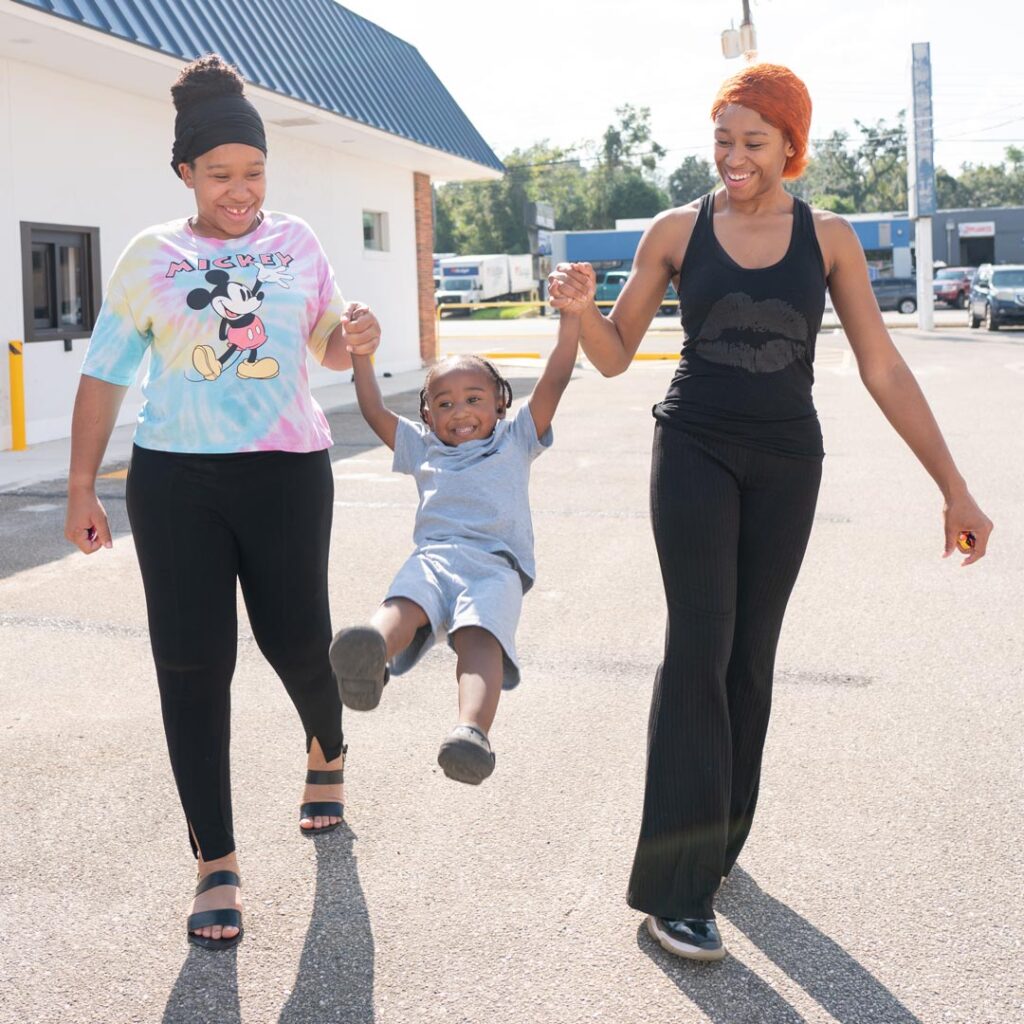
Jahfrica, a patient at Bond, had observed her sister enjoying motherhood and couldn’t wait to share the experience with her and her nephew. They all planned to visit amusement parks together and enjoy the many nearby beaches.
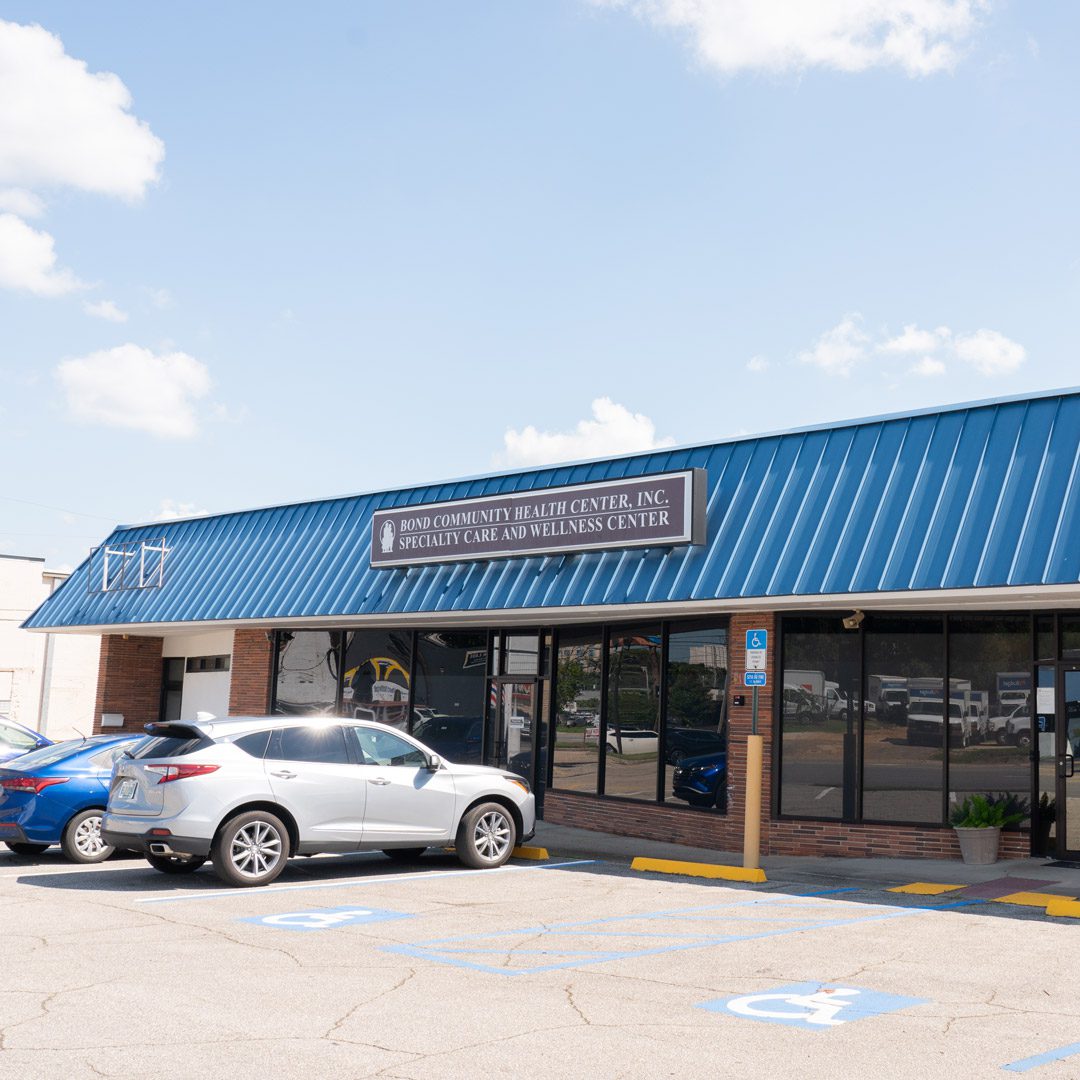
“There are several challenges to serving pregnant moms and children in this community. The biggest one we battle every day is transportation. Mothers can sometimes find a way to get here, but not a way to get back. Sometimes they can’t find a way to get here at all, or the bus route isn’t convenient. The transit system can be challenging due to its set schedules. If you’re using that system, you may end up being — I don’t want to say ‘stranded,’ but really, stranded here until the next bus comes around.”
– Dr. Temple O. Robinson, CEO, Bond Community Health Center
Meet Them Where They Are
A lack of transportation limits access to healthcare for families in South Florida, too. The Okeechobee Healthy Start Coalition is a nonprofit dedicated to improving maternal and child health within the community. They focus on providing essential home visiting services to pregnant women and families with young children, ensuring that everyone has access to the care and resources needed for healthy pregnancies and early childhood development.
LOREM IPSUM
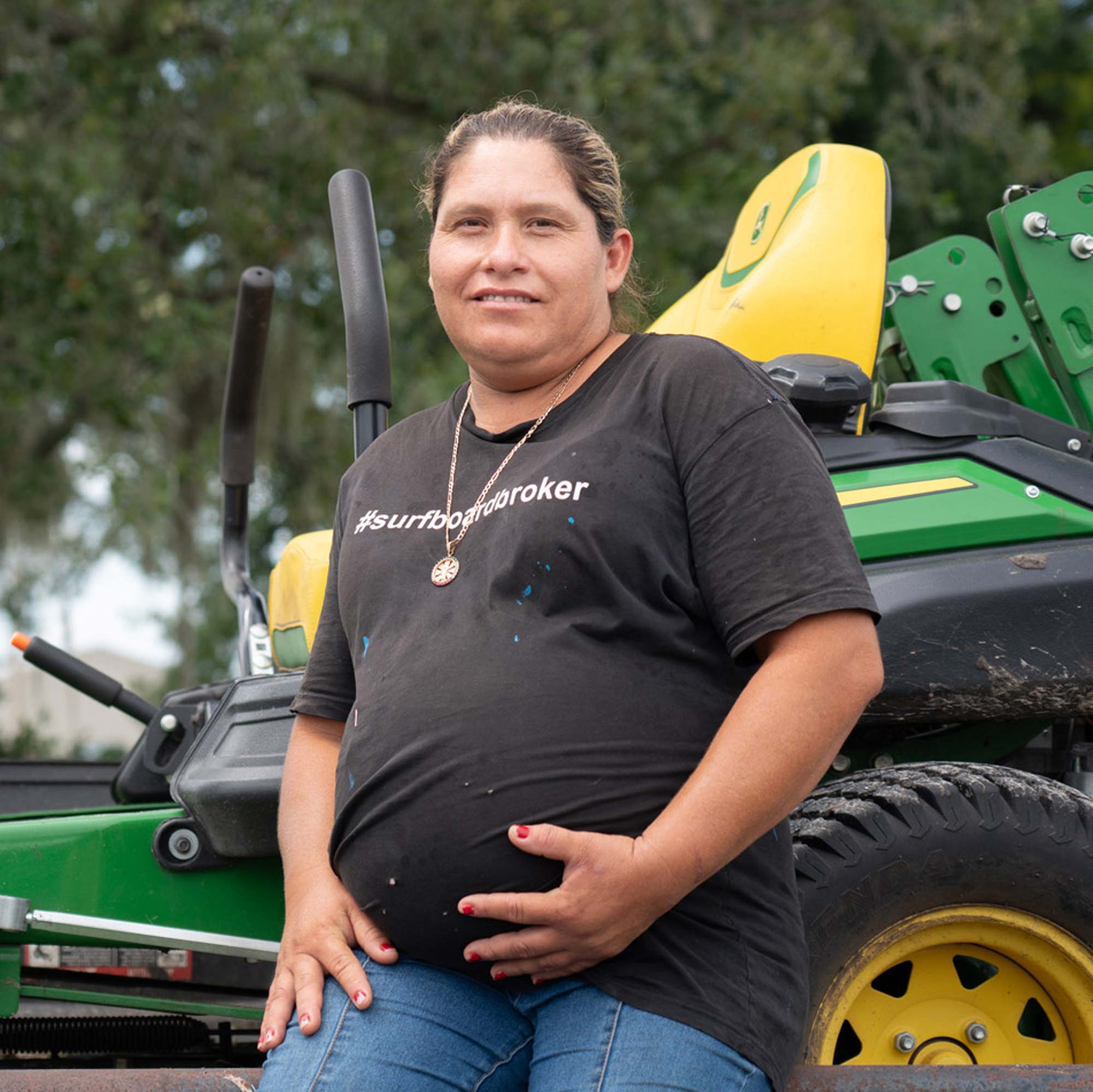
Horalia
Horalia was eight months pregnant with her fourth child—a boy—she and her husband maintain a local ranch. They manage everything from planting to operating machinery. A skilled farmworker, Horalia tends to the ranch while her three children, ages 18, 12, and 6, attend school.
Throughout her pregnancy, Horalia felt calm and content. She had taken prenatal vitamins during each of her pregnancies and believed they played an important role in supporting a healthy birth. “I take them to keep my baby strong and to avoid complications,” she said. “I’ve taken them with all my pregnancies.”
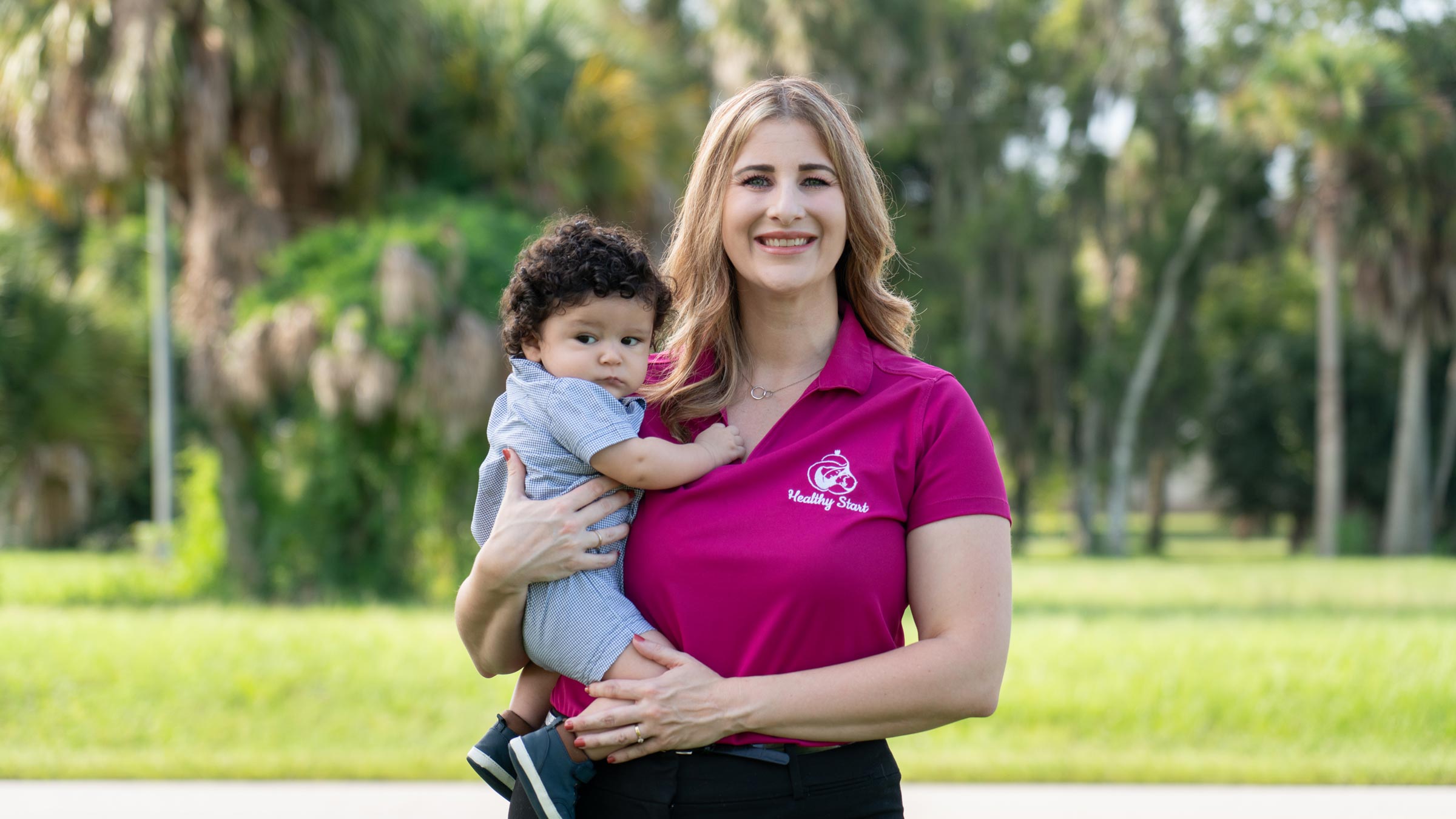
Andrea, Executive Director of Okeechobee Healthy Start Coalition, stands with her son.
“Transportation is one of our biggest challenges—we don’t have any public transit at all,” says Andrea Medellin, Executive Director of the Okeechobee Healthy Start Coalition. That’s why our home visiting program is so important. It allows us to bring Vitamin Angels prenatals directly to families. We meet them where they are, and we also make sure they’re educated about the vitamins and nutrition by giving our staff materials to leave behind.”
In addition to basic health services, the Healthy Start Home Visiting Program provides families with education on nutrition, as well as prenatal vitamins and minerals, in partnership with Vitamin Angels. They also offer prenatal vouchers to uninsured or underinsured women, especially those who may not qualify for Medicaid. Since 2018, the program has reached approximately 90% of women in the area soon after they confirm their pregnancies, ensuring they receive vital information about available resources, according to Andrea Medellin, the Executive Director.
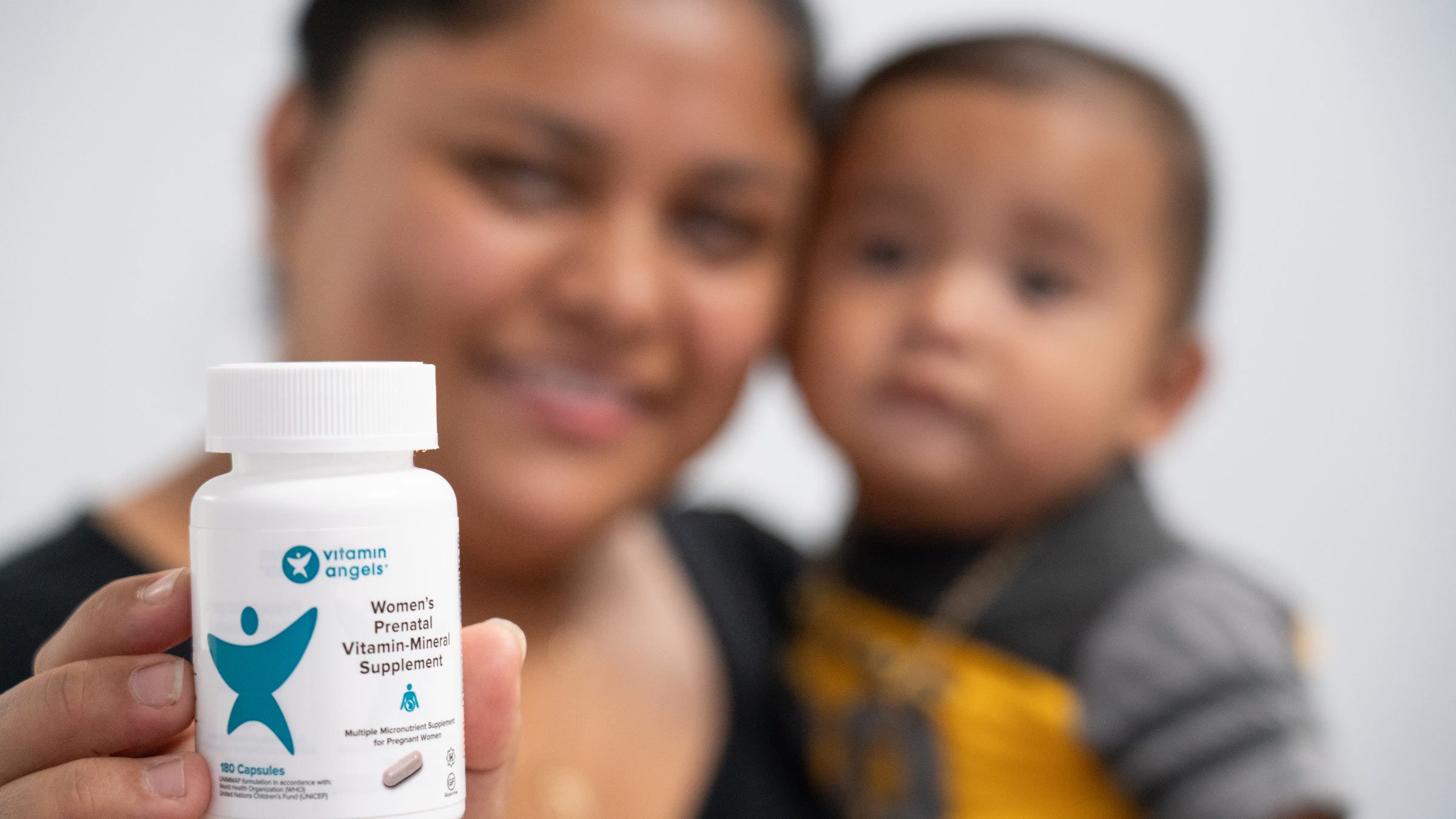
Bianca took prenatal vitamins and minerals when she was pregnant with her son. “At the beginning of my pregnancy, I felt drained, but after taking the vitamins, I felt so much better. It really helped me, especially while working,” she shared.
Bond Community Health Center and the Okeechobee Healthy Start Coalition are showing what’s possible when care meets people where they are. Whether it’s bringing services directly into neighborhoods or providing support and resources at someone’s home, these organizations are helping families overcome one of the biggest hurdles to healthcare: transportation. Their work is making it easier for pregnant people and young children to get the care they need—right when they need it most.
2PolicyMap. (n.d.). Crude percent of lack of reliable transportation in the past 12 months among adults in 2022 [Map based on data from CDC_PLACES: Data downloaded from https://www.cdc.gov/places/index.html, August 2023]. Retrieved July 14, 2025, from http://www.policymap.com


